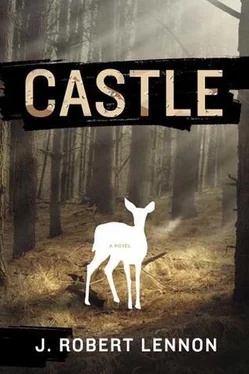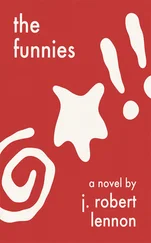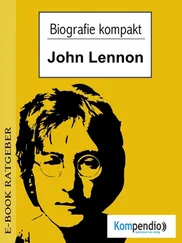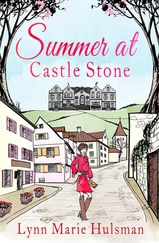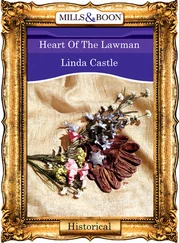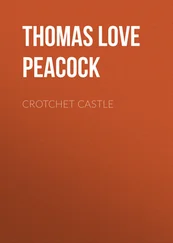“Pardon me,” I said again, this time in a conciliatory tone. “There was no need for me to become hostile. I appreciate your offer of help, but I prefer to be alone.”
“Fine,” the man said, his expression unchanging.
“I’m sure we’ll see one another again,” I added.
“I’ll look forward to it.”
I offered him a final nod of acknowledgment, then took hold of my cart and pushed it toward the sliding glass exit doors. Just as I was about to leave the building, I hazarded a glance over my shoulder. The clerk was still watching me.
After a day and a half of aggressive cleaning and sanding, I made an interesting discovery. Part of the transfer of ownership of the property involved the creation of a title abstract, a copy of which the bank had given me at the time of closing. The abstract was held in a legal-sized manila envelope, and consisted of a quarter-inch-thick sheaf of papers, stapled at the corner. For some days I had left it sitting in the back seat of my car, as I concentrated upon the renovations. But that afternoon, weariness overcame me: I had overextended myself in my eagerness to complete my labors. I decided to take a break. A light rain was falling, and the air was pleasingly cool, so I took a seat on the newly repaired front stoop of the house, drank from a bottle of water, and paged through the abstract.
As it happened, the document was fascinating. The legal firm that handled the transfer of ownership had researched the history of the property, and compiled facsimiles of every document it discovered into this compact, convenient package. It was arranged with the oldest information at the back, so that is where I began reading.
The bottom document was dated October 12, 1933, and consisted of a typewritten history of the property up to that point. Evidently, most of the county had been ceded to the colonial government in 1762 by the Kakeneoke Indian tribe. We can assume that this arrangement was less than fair to the Indians, but its details were not provided in the abstract. The land was not settled immediately, but was used extensively by hunters and trappers up to, and during, the American Revolution. At this time, it was divided into large plots and given to veterans of the war as part of their compensation for military service. My plot was a portion of a much larger plot that had been assigned to a man named Ezekiel Cordwell.
No information was provided about this man, other than that he had “served honorably” in the Revolutionary War, that he did indeed come to occupy the land, and that he died in 1815. At this time, ownership of the land was transferred to his son, Daniel, and then to another son, Peter, in 1821.
Apparently no records existed for the years between 1821 and 1904, but it is clear that, at some point during that time, the land was owned by a man named M. Jefferson, for it was he who sold it in 1904. This Jefferson was a farmer and a freed slave, but the documents gave no indication whether or not he actually farmed the land. In any event, by this time the land had been further subdivided, and the plot that M. Jefferson sold had very nearly the same boundaries of that which I had bought — with one important exception that I will reveal in a moment.
The land was bought by another farmer, Gerald Jones, and some years later — we can surmise during the Great Depression — it fell into disuse. Given the density of the forest at the time of my purchase, it is safe to assume that no farming took place on the land after Jones abandoned his efforts.
At this point the abstract took a peculiar, somewhat mysterious turn. The next document revealed that ownership of the land was transferred in 1959—but this document differed from the others in one important way. The name of the person who bought it was carefully blacked out with what appeared to be a thick marker. I held the papers closer to my face and tilted them against the weak gray light of the afternoon, figuring that I could make out the words underneath the ink. But I could not. My copy of this page of the title was obviously a photocopy of the one that had been blacked out — or perhaps even a copy of a copy. I quickly flipped through the remaining pages, and found one additional blackout, on the document describing the purchase of the land by the state of New York. The rest of the land’s history I have already mentioned: the state’s intention to transform it into a public wilderness area, their failure to do so, and finally my own purchase of it.
I got out my phone and called the law office that had prepared the abstract — their number was printed on each page — to inquire why the previous owner’s name was blacked out, and who had done the censoring. The woman I spoke with declined to give me any additional information. I was irritated, of course. But I understood that further complaint was not, at this moment, to my advantage.
The curious issue of the blacked-out name, however, was soon overshadowed by the interesting discovery that I have mentioned. One of the new documents near the top of the abstract was a detailed survey map of the property. I say “detailed” primarily because of its impressively specific measurements; these included exact lines of longitude and latitude, and the angle and length of each property line. But the fact was, there was very little detail to be recorded. The house and the lot it stood upon were evident on the southwest corner; the creek that demarcated the northeast corner was also clear. And the rocky crag was shown slightly east of center, precisely where I’d have expected it to be.
What surprised me was that, pressed up against the western face of the rock, there was a small lopsided quadrilateral that I did not appear to own. This section of land was less than an acre in area, and was filled in on the survey map with a series of diagonal parallel lines. I searched the accompanying text for some explanation, and eventually found, buried in the packed paragraphs of legalese, a single mention: “Beginning at a point marked by an existing iron pin at…”—and here a series of coordinates were given—“and running thence west 80 degrees a distance of 257 feet, 6 inches to an existing iron pin, and running thence south 05 degrees a distance of 194 feet, 3 inches to…”—and here the remainder of the coordinates and distances were given, and the description concluded by saying, “SUBJECT TO the restrictions contained in the deed recorded in the Henford County Clerk’s Office, and the grantor herein certifying that said restrictions have been complied with, the above-described premises are NOT included in the terms of this SURVEY.”
Now, I am not a lawyer, nor do I understand fully the laws that regulate the real estate market. But this seemed to me a clear indication that a small area of land to the west of the rock did not belong to me. Needless to say, I immediately called the law office once again, and from an assistant there received confirmation that this was in fact the case. That bit of land was not mine.
“To whom, then,” I asked, “does it now belong?”
The woman’s voice grew distant, as if she were leaning away from the phone to consult her papers. “Err… ,” she said, “I will probably have to get back to you on that.”
I persisted. “There is nothing in your records that can answer my question?”
“I’m sure there is, Mr. Loesch. But it will take some time to find it.”
“And tell me this,” I went on. “If there’s a bit of land there that someone else owns, it’s logical to assume that there should be a right of way to it, correct?”
“Ahh… yes, I suppose so.”
“But it would appear there is no right of way.”
“Hmm,” the woman said. “Yes. It does look that way.”
“And so this must be some kind of mistake, correct?”
Читать дальше
